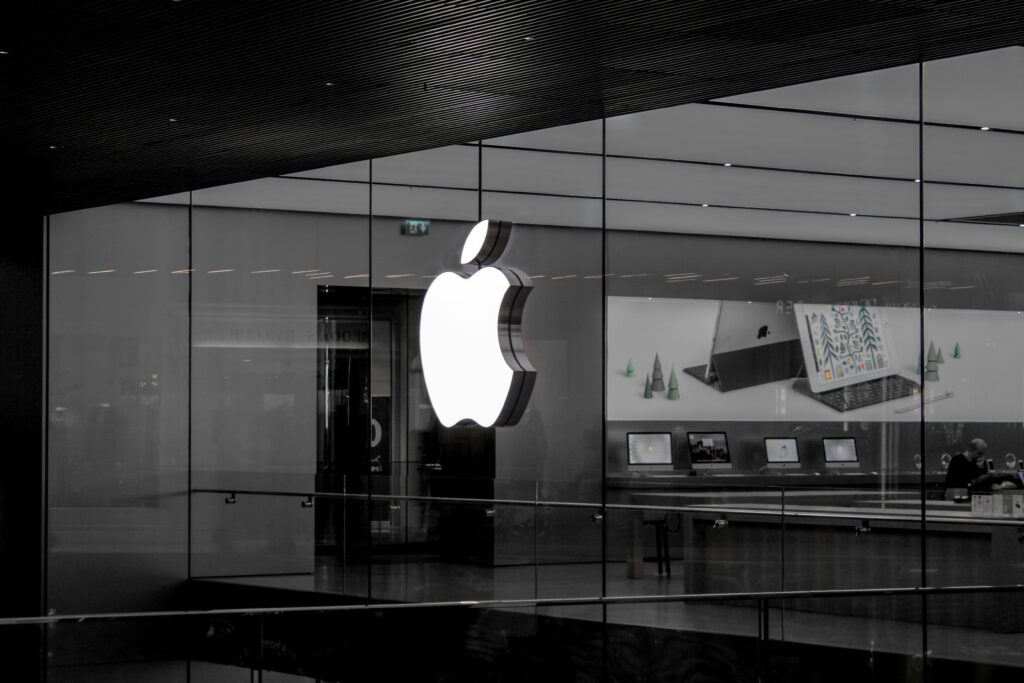Strong iPhone demand lifted Apple’s revenue during the three months ending in September, closing the fiscal year with record profits. Apple posted stronger-than-expected financial results despite the global trade war and its struggle to catch up in artificial intelligence.
The company credited the surge mainly to robust demand for its iPhone 17 lineup, which launched last month. “Apple proudly reports a September quarter revenue record of $102.5 billion, including record highs for iPhone and Services,” said CEO Tim Cook.
Apple earned $27.5 billion (€23.8bn), nearly doubling last year’s profit, and its shares gained 2% in after-hours trading. Although the iPhone 17 lacks advanced AI features seen in Samsung and Google devices, Apple revamped its design with sleek “liquid glass” displays. It held prices steady despite tariffs on US-bound devices from factories in India and China. Those tariffs cost Apple $1.1bn (€950m) last quarter and may reach $1.4bn (€1.2bn) next quarter.
Consumers responded strongly, especially in the US and Europe. iPhone sales reached $49bn (€42.4bn) from July to September, a 6% rise from last year, though below analysts’ 8% forecast and slower than the 13% growth in the prior quarter.
Ben Barringer of Quilter Cheviot said, “Mac sales rose 12%, and iPhone sales climbed around 6%. But iPad and wearables stayed flat.” He noted that weak sales in China fell 4%, affected by forecasting errors and limited supply.
IDC estimated Apple sold 58.6 million iPhones worldwide in the quarter, trailing Samsung’s 61.4 million Android phones. For the fiscal year ending in September, Apple reported a record $112 billion (€96.8bn) in net income, up 20% from the previous year.
Apple Forecasts Strong Holiday Sales
During a call with analysts, Tim Cook predicted that the iPhone 17 lineup would keep driving strong results through the holiday quarter. Apple expects iPhone sales to climb at least 10% from last year’s holiday season, according to CFO Kevan Parekh. Total revenue should grow at a similar pace.
“Apple’s Q1 guidance of 10–12% revenue growth looks solid heading into Christmas, supported by iPhone 17 demand,” Barringer said.
Investor Confidence Meets AI Skepticism
Apple’s shares have soared since research firm IDC hinted at record iPhone sales earlier this month. The rally pushed Apple’s market value above $4 trillion for the first time and could fuel another high during Friday’s session.
Still, many investors see Apple trailing in the AI boom. Nvidia, whose chips drive AI systems, recently became the first $5 trillion company. Apple had promised broad AI upgrades for last year’s iPhones but delivered only a few. The improved Siri assistant remains delayed until next year.
Barringer questioned whether Apple’s momentum can sustain investor interest. “With China uncertainty and faster-growing rivals like Microsoft and Nvidia, some investors may look elsewhere,” he said.
Yet Apple often starts late in new tech trends before surging ahead. Wedbush analyst Dan Ives believes that integrating advanced AI features could add $1 trillion (€860bn) to $1.5 trillion (€1.3tr) to Apple’s market value, or $75–$100 per share.


